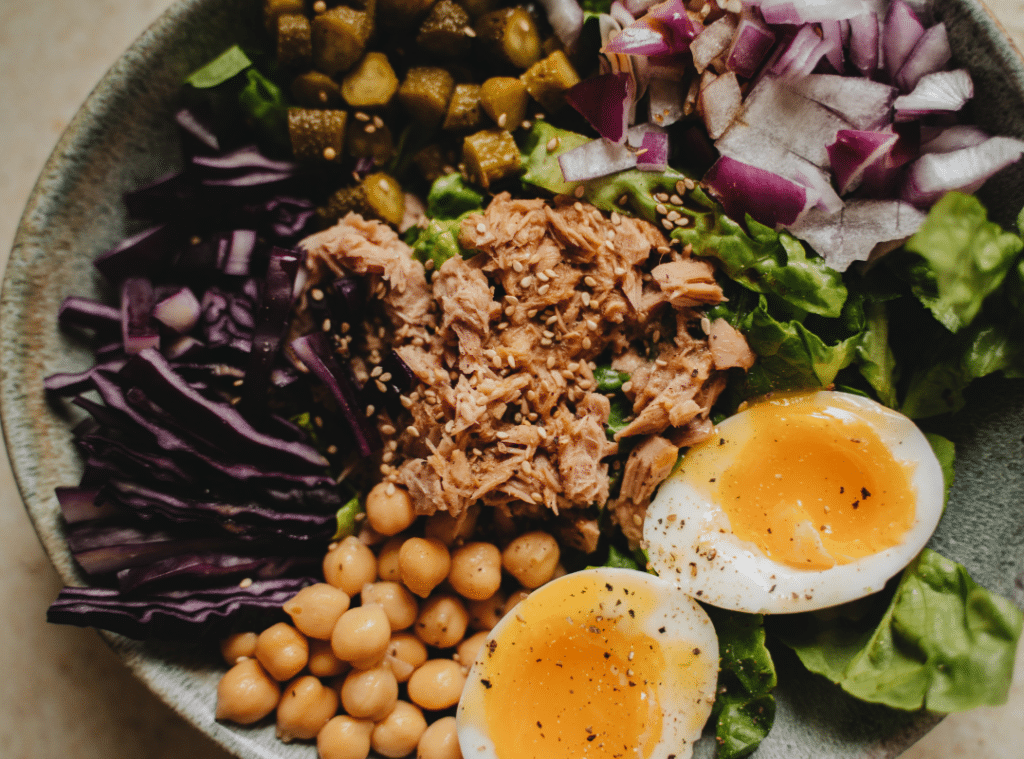Exploring Easy Meals for Dementia Patients
Supporting a loved one with dementia involves many daily decisions, and mealtime is one of the most important. Offering easy meals for dementia patients helps reduce stress, encourages independence, and ensures they receive proper nutrition. By choosing the right foods and presenting them in manageable ways, caregivers can create a positive dining experience that enhances quality of life.
At Westmont of La Mesa, we understand that dementia and eating issues vary from person to person. Some seniors struggle with utensils, others may forget to eat, and many experience changes in appetite or taste. This guide offers practical solutions, like soft food ideas for dementia patients, a helpful list of finger foods for dementia patients, and tips to avoid common mealtime pitfalls.
Why Finger Foods Work So Well
Finger foods offer autonomy for those struggling with coordination. A carefully selected list of finger foods for dementia patients allows them to eat without utensils, promoting dignity and reducing mealtime frustration. Great options include:
- Soft chicken strips or nuggets
- Mini sandwiches or sliders
- Cubes of cheese or cheese sticks
- Boiled egg halves
- Mini quiches and soft fruits like bananas or melons
According to the Alzheimer’s Association, creating a familiar and manageable eating routine can help reduce confusion. Offering finger foods is a smart way to do just that, while also making it easier for caregivers to provide support.
Additionally, a comfortable dining setting can enhance the entire mealtime experience.
Breakfast Options That Start the Day Right
Breakfast is a great opportunity to introduce nourishing, manageable food. For easy meals for dementia patients, consider familiar textures and simple-to-hold items. Here are some caregiver-friendly options:
- Yogurt with soft granola
- Soft scrambled eggs
- Mini pancakes or waffles with syrup for dipping
- Smoothies made with berries and protein powder
- Fruit cups or unsweetened applesauce
These soft food ideas for dementia patients balance taste, nutrition, and ease of use. Creating a structured environment helps minimize anxiety and encourages better food intake at the start of the day.
Satisfying and Nutritious Lunch and Dinner Recipes
Lunch and dinner should feel enjoyable while being easy to eat. The best dinner recipes for dementia patients focus on flavor, softness, and simplicity. Here are a few options to try:
- Baked fish with mashed sweet potatoes
- Soft tacos with ground beef, cheese, and avocado
- Grilled cheese sandwich and tomato soup
- Casseroles with noodles and tender vegetables
- Meatballs with rice or soft pasta
Choosing foods that are both nutritious and easy to chew is key. You can also explore nutritional counseling services to ensure your loved one’s meals meet their unique dietary needs.
The National Institute on Aging also provides useful advice on eating well for older adults, especially those living with chronic conditions like dementia.
Snacks and Sweet Treats That Encourage Eating
Snacks are great for boosting calorie intake and mood. Easy-to-grab and easy-to-chew options can encourage your loved one to eat throughout the day. Popular snacks include:
- Pudding or gelatin cups
- Cookies or mini muffins
- Yogurt or custard
- Soft fruit like banana slices
- Ice cream bars or frozen yogurt
While offering treats, avoid sugary items that can interfere with medications or cause agitation—common concerns on the dementia foods to avoid list. The Family Caregiver Alliance also suggests experimenting with temperature and flavor to increase interest in food.
Also, incorporating nature-based activities into daily routines can improve appetite and create more positive associations with food.

Making Fruits and Vegetables Appealing
Incorporating produce in a dementia-friendly way requires a little creativity. The goal is to keep textures soft and pieces small. Here are a few soft food ideas for dementia patients using fruits and vegetables:
- Steamed carrots or broccoli florets
- Mashed avocado on soft toast
- Banana slices with yogurt
- Baked sweet potato wedges
- Fruit smoothies or purees
These options offer key nutrients while remaining easy to chew and swallow. For added benefit, try foods rich in antioxidants—these support brain function and reduce inflammation. For more insights, see our article on nutrition for older adults.
Creative Presentation Ideas
Presentation plays a big role in appetite. Here are some fun ways to make fruits and vegetables more enticing:
- Fruit kabobs with soft fruits like melon and grapes
- Veggie boats using hollowed-out cucumbers filled with soft dips
- Rainbow platters of steamed vegetables
- Mini fruit cups served in colorful bowls
These engaging displays make food more approachable and exciting for those with dementia and eating issues.
What to Avoid: Dementia Foods to Avoid
Certain foods can create risks or increase confusion. It’s important to avoid:
- Dry, crumbly foods like crackers or rice cakes
- Hard fruits and vegetables, unless steamed
- Foods with skins, like sausages or apples
- Large chunks of meat
- Sticky foods like peanut butter
The Alzheimer’s Association notes that choking risks increase with dementia progression, so keep portions small and textures soft.
Mealtime Challenges and How to Overcome Them
When it comes to dementia and eating issues, common challenges include forgetting to eat, food refusal, or difficulty using utensils. Here are some proven strategies:
| Challenge | Strategy |
| Won’t eat | Offer finger foods and familiar favorites |
| Distracted during meals | Use quiet, simple settings |
| Difficulty chewing | Offer soft or pureed versions of favorite foods |
| Forgetting meals | Set consistent mealtime routines |
Your patient approach can turn mealtimes into comforting routines. If needed, seek professional dietary advice to customize your approach.
Sample Daily Meal Plan
Here’s a sample day using easy meals for dementia patients with plenty of soft food ideas for dementia patients and finger foods:
- Breakfast: Yogurt with soft berries, scrambled eggs
- Snack: Pudding cup, sliced bananas
- Lunch: Grilled cheese sandwich, tomato soup
- Snack: Mini muffin, soft fruit
- Dinner: Soft taco, mashed sweet potatoes
- Dessert: Ice cream bar or custard
Each meal is designed to be manageable, flavorful, and comforting.
Mealtimes That Bring Comfort and Connection
Creating easy meals for dementia patients is about more than food—it’s about connection. With thoughtful planning and the use of soft food ideas for dementia patients, along with a reliable list of finger foods for dementia patients, you can reduce stress and increase satisfaction at every meal.
Avoid common dementia foods, and instead, lean into comforting dinner recipes for dementia patients that restore joy to the table. Even simple efforts, like cutting fruit into bite-sized pieces or offering a warm bowl of soup, can profoundly impact someone’s day.
To explore how Westmont of La Mesa can support your loved one’s memory care and dining needs, schedule a visit or speak with our compassionate team. Call us at 619-369-9700 or schedule a Tour today.
Dive into the vibrant life our Westmont communities have to offer.Find Where You Belong
Frequently Asked Questions
What is a good dinner for someone with dementia?
A good dinner for someone with dementia should be simple, nutritious, and easy to chew and swallow. Soft foods like baked fish, mashed potatoes, steamed vegetables, or scrambled eggs work well. Finger foods can also be helpful if using utensils becomes difficult. Avoid too spicy, hard, or unfamiliar foods, as these may cause confusion or discomfort.
What foods are easy to eat for the elderly with dementia?
Soft fruits (like bananas), yogurt, oatmeal, scrambled eggs, and cooked vegetables are easy-to-eat foods for seniors with dementia. Finger foods such as sandwiches, cheese cubes, or sliced chicken can promote independence. Avoid dry or tough textures that may be hard to chew or swallow. Small, bite-sized portions also help reduce frustration during meals.
What are the signs that dementia is getting worse?
Signs of worsening dementia may include increased memory loss, confusion about time or place, and difficulty recognizing loved ones. You might also notice mood changes, withdrawal from social situations, or trouble with basic tasks like dressing or bathing. Wandering, hallucinations, and language problems may also occur. Tracking changes and consulting a doctor for proper care adjustments is essential.
What do you do when a dementia patient doesn’t want to eat?
When someone with dementia refuses to eat, try offering smaller, more frequent meals or favorite foods in a calm, quiet setting. Avoid pressuring them, and instead, create a relaxed mealtime routine. You can also try offering finger foods or nutritional shakes if chewing is challenging. If the issue continues, consult a healthcare provider to rule out medical causes.








